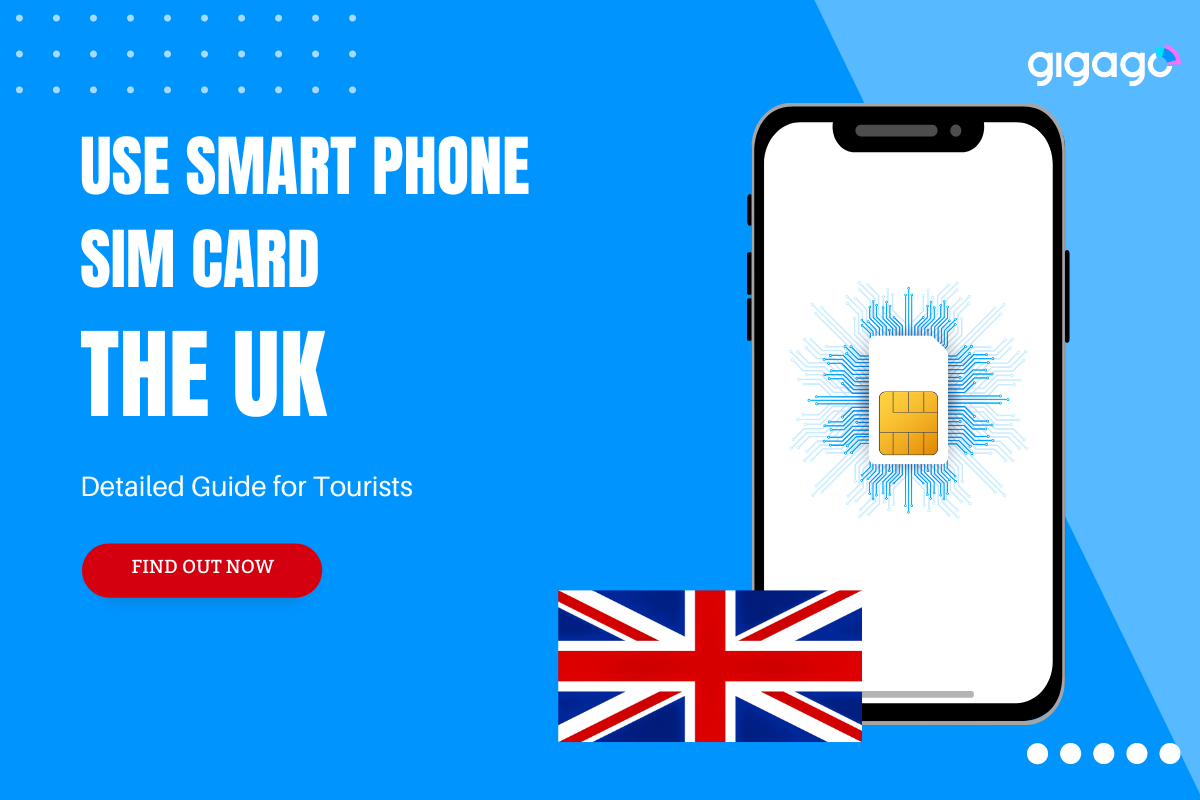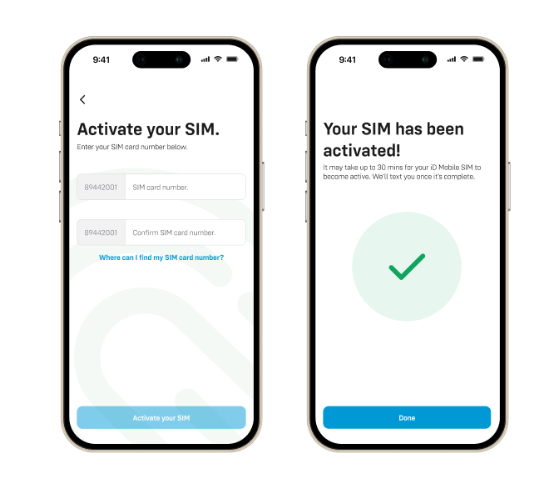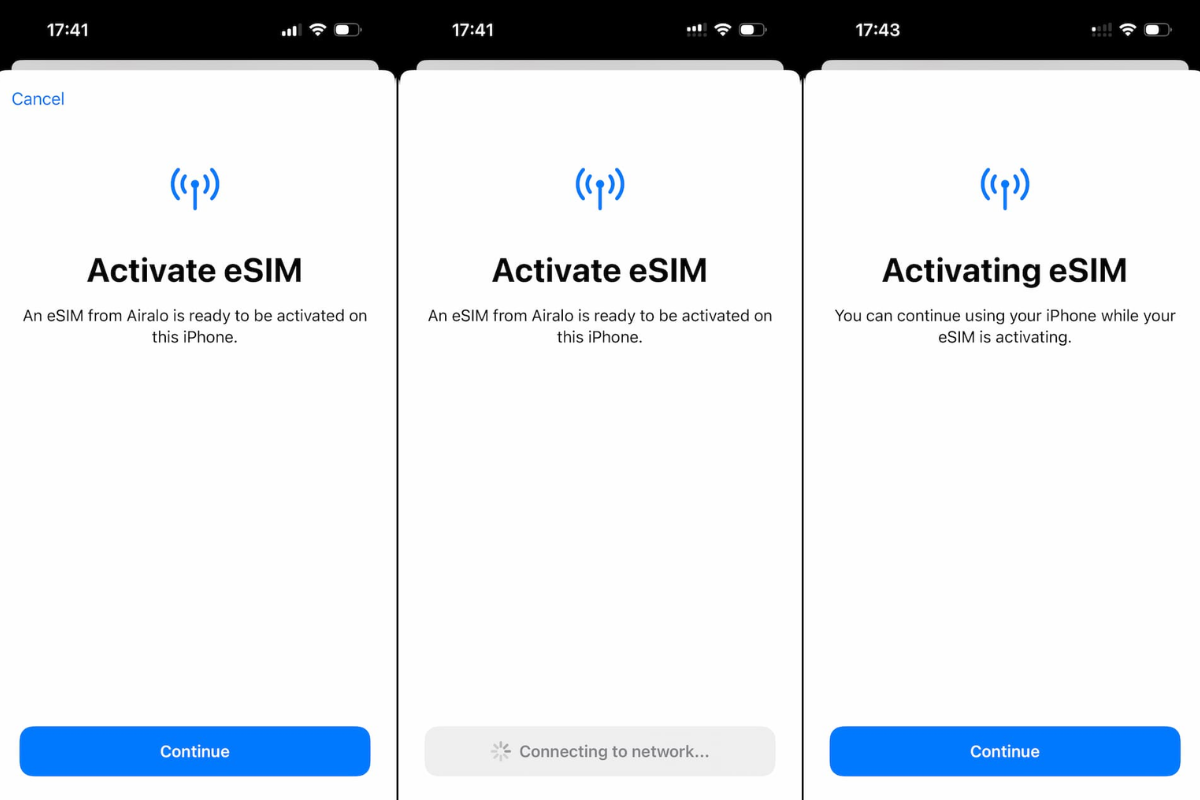Guide to Using Smart Phones, SIM Card for Travel in UK
Traveling to the United Kingdom can be an exciting adventure filled with rich history, vibrant culture, and stunning landscapes. However, staying connected during your journey is essential for navigation, communication, and sharing experiences. One of the most effective ways to ensure you remain connected while exploring the UK is by using a smartphone with a local SIM card.

Guide to using smart phones and sim card in the UK
This guide will provide you with all the necessary information about using smartphones and SIM cards for travel in the UK, including whether your phone will work, how to choose the right SIM card, where to buy it, and tips for maximizing your connectivity.
I. Will my phone work in the UK?
Yes.
Most modern smartphones are designed to work on multiple frequency bands, which means they are likely compatible with UK mobile networks. However, it’s crucial to check if your device supports GSM (Global System for Mobile Communications) technology, as this is the standard used by most carriers in the UK. If your phone is GSM-compatible, you should be able to use it without any issues.
Unlocked Phones are Key: For your phone to work in the UK, it needs to be unlocked. This means it’s not tied to your current phone company and you can use SIM cards from other providers (like the ones you’ll get in the UK). If your phone is locked, contact your carrier to get it unlocked before your trip.
Checking Network Bands (for extra certainty): To guarantee a strong signal, look up your phone’s “network bands” (online or in settings) and compare them to those used by UK phone companies like Vodafone or EE. This ensures complete compatibility and avoids any connectivity surprises.
II. Can my local carrier’s mobile data plan work in the UK?
While many travelers consider using their local carrier’s mobile data plan while in the UK, the feasibility of this option depends on several factors, including roaming agreements, costs, and coverage.
Roaming Agreements
Many mobile carriers offer international roaming plans that allow you to use your existing phone number and data plan while abroad. Before your trip, check with your local carrier to see if they have a roaming agreement with UK networks. If they do, you may be able to use your phone without purchasing a separate SIM card.
Costs of Roaming
While roaming may seem convenient, it often comes with high fees. Charges can include per-minute rates for calls, per-text charges, and exorbitant data rates. For example, some carriers might charge $10 per day for unlimited data usage, while others may impose pay-per-use rates that can quickly add up. It’s essential to review your carrier’s roaming policy carefully to understand the potential costs involved.
Alternatives to Roaming
If your local carrier does not offer favorable roaming options, or if you want to avoid high fees altogether, purchasing a local SIM card in the UK is a more cost-effective solution. Local SIM cards generally provide better data packages at lower prices, making them an ideal choice for travelers who plan to stay connected during their visit.
You can find out information to using your phone while travelling in the UK through: How to Plan a Trip to the UK
III. SIM Card – Cheapest but the Best Way to Stay Connected on the Go in the UK
Using a local SIM card is one of the most affordable and efficient ways to stay connected while traveling in the UK. With various options available, you can choose a plan that best suits your needs, whether you’re looking for data, calls, or texts.
There are two primary types of SIM cards available for use in the UK: physical SIM cards and eSIMs. Understanding the differences between these two options can help you make an informed decision.
| Feature | Physical SIM Card | eSIM |
| What is it? | A small card you put into your phone. | A digital SIM already built into your phone. |
| Where to buy? | Airports, stores, phone shops | Online, before you even travel to the UK! |
| Pros | Works with most phones, easy to find | Super convenient, no need to swap physical cards. |
| Cons | Need to make sure it’s the right size for your phone | Your phone needs to support eSIMs. |
Important notes:
Choosing the Right SIM:
- Check your phone: Does it have a slot for a physical SIM card? Does it support eSIMs?
- Decide what’s important: Do you want to buy your SIM before you travel? Or would you rather buy it when you arrive?
Finding the Right Plan:
- Lots of options: Many companies offer special plans for tourists with lots of data.
- Think about your needs: How much data will you use? Will you need to make calls?
No matter which type of SIM card you choose, you’ll be able to stay connected and enjoy your trip to the UK!
IV. Where to Buy SIM Card/eSIM for UK
You’ve made the smart choice to use a local SIM card or eSIM for your UK travels. Now, let’s explore the best places to make your purchase:
1. Airports:
Most major UK airports (like Heathrow, Gatwick, and Manchester) have kiosks and shops selling local SIM cards. It’s undeniably convenient to grab one as soon as you land.
- Pros: Super convenient upon arrival.
- Cons: Prices are often higher than other options.
2. Mobile Network Shops:
Major carriers like Vodafone, EE, O2, and Three have dedicated stores across the UK. Visiting a shop allows you to chat with staff, compare plans, and get assistance with activation.
- Pros: Personalized help, plan comparisons, and activation support.
- Cons: Requires finding a store, which might not be convenient.
3. Convenience Stores and Supermarkets:
Need a SIM on the go? Many convenience stores and supermarkets (think Tesco, Sainsbury’s, WHSmith) sell prepaid SIM cards. It’s a handy option if you’re already out and about.
- Pros: Easy to pick up a SIM while running errands.
- Cons: Limited selection, minimal help available.
4. Online (for eSIMs):
If you’re going the eSIM route, you can buy and activate your plan online before even arriving in the UK. Many carriers offer easy online processes to download your eSIM profile directly to your phone.
- Pros: Purchase and activate before your trip, no need to find a store.
- Cons: Only for eSIM-compatible phones, not an option for physical SIMs.
V. How to activate a SIM/eSIM Card After Purchase?
After purchasing your SIM card or eSIM, the next step is activating it so you can start using it right away. The activation process varies slightly depending on whether you have a physical SIM or an eSIM.
1. Activating a Physical SIM Card

How to activate physical SIM card
- Turn off your phone
- Insert the SIM card into the slot
- Turn your phone back on
- Activate your SIM (if needed):
Enter your PIN (if you have one)
Confirm your plan details (if needed)
- Test your connection:
Make a phone call
Use mobile data
2. Activating an eSIM

How to activate eSIM
- Find your eSIM info (QR code or details) in your email.
- Open your phone’s settings and go to “Cellular” or “Mobile Data.”
- Tap “Add Cellular Plan,” then scan the QR code or enter your details.
- Follow the on-screen instructions.
VI. More Tips for Using a Phone and SIM Card in the UK
To make the most of your smartphone and SIM card while traveling in the UK, consider the following tips:
Save Money on Data:
- Check your data: Watch how much data you’re using so you don’t go over your limit. Your phone can show you which apps use the most data.
- Use Wi-Fi: Connect to free Wi-Fi in cafes, restaurants, and public places to save your mobile data.
Useful Apps:
- Get around easily: Use apps like Citymapper or Uber for public transport and taxis.
- Translate languages: Download a translation app if you need help understanding English.
Be Prepared:
Save important numbers: Keep phone numbers for emergency services, your country’s embassy, and family/friends handy.
VII. FAQs
1. Can I use my smartphone in the UK without a SIM card?
Yes, you can use your smartphone in the UK without a SIM card, but your functionality will be limited to Wi-Fi connections. You won’t be able to make calls or send texts without a SIM card unless you use internet-based services like WhatsApp or Skype.
2. What happens if I lose my SIM card while in the UK?
If you lose your SIM card while in the UK, contact your carrier immediately to report the loss. They can assist you in suspending your service and may offer a replacement SIM card. Be prepared to provide identification and proof of purchase.
3. Are there any restrictions on using a local SIM card in the UK?
No, there are no significant restrictions on using a local SIM card in the UK. However, ensure that your phone is unlocked and compatible with UK networks to avoid any issues.
4. Is it possible to keep my original phone number while using a local SIM card?
When you use a local SIM card, you will be assigned a new UK phone number. If you want to keep your original number, consider using a dual-SIM phone or utilizing services like call forwarding or virtual phone numbers.
VIII. Conclusions
Staying connected while traveling in the UK is essential for navigating, communicating, and sharing your experiences. By understanding how to use smartphones and SIM cards effectively, you can ensure seamless connectivity throughout your journey. Whether you choose a physical SIM card or an eSIM, the options available will cater to your needs and budget. Remember to manage your data usage, take advantage of free Wi-Fi, and download helpful local apps to enhance your travel experience. With the right preparation, you can enjoy your trip to the UK while staying connected effortlessly.

